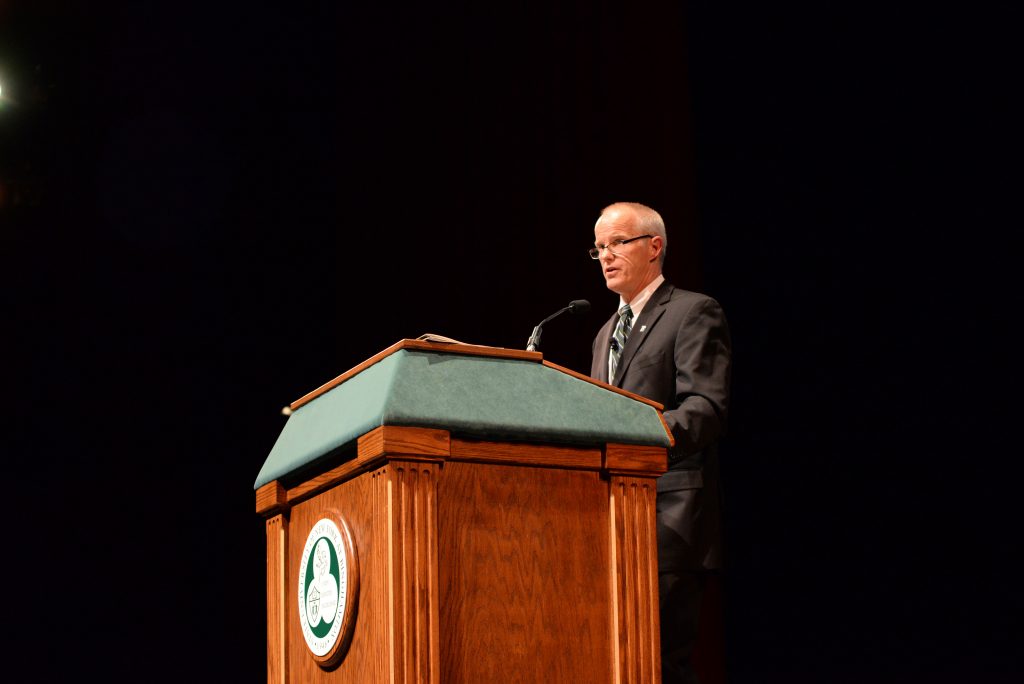
On Thursday afternoon, Binghamton University President Harvey Stenger spoke to the campus community in his annual State of the University address held in the Anderson Center’s Osterhout Concert Theater.
Breaking away from an emphasis on plans that has been a trend in previous State of the University talks, Stenger reflected on changes since he arrived at BU four years ago.
“We’ve grown,” Stenger said. “You can grow, and not get better. But growing and getting better was the key to this plan that we started four years ago, that we call the Road Map.”
Stenger introduced the Road Map to Success Plan in 2012. It emphasized a collaborative approach for advancing University goals, and focused on improving graduate research, enhancing education, fostering diversity and increasing the University’s economic, social and cultural impact, among other things.
According to Stenger, in the past four years, tenured and tenure-track faculty at BU have increased by 30 percent. Student enrollment has increased by 15 percent, and he noted that hiring more faculty than students, percentage-wise, has allowed for increased student success. In terms of physical growth, new and renovated buildings have increased the square footage on campus by 15 percent.
Despite this, Stenger said, it is time to rewrite the Road Map Plan.
“We need to regroup,” Stenger said. “We need to renew it, because I really believe that there are so many new people on campus that they should be involved in creating the next five-year plan. So, we’re going to be looking for new and old members. We’re going to be looking at how we can take the current environment, our emphasis on collaboration and find new ideas for solving problems.”
Calling for faculty, staff and people outside of the University to get involved in the plan’s renewal, Stenger presented a timeline for the project. Teams devoted to different issues will begin work in December, and continue to work on their plans throughout the spring. Final proposals for the new Road Map Plan will be presented by April 2017.
With the construction of the new pharmacy school, Stenger transitioned to address safety concerns for students off campus. He referenced the partnership between the University and the city of Binghamton to protect students living in Downtown Binghamton, and said that they will work to form similar partnerships with Johnson City as students relocate. He also talked about regional job growth, promising 10,000 new jobs in the area. He said he hopes many of these positions will be filled by BU graduates.
John Starks, the chair of the classical and Near Eastern studies department, said that reflecting on the past years has allowed the University to see what has and hasn’t worked, and find ways to improve.
“I think giving people an idea of where we’ve gone in a relatively short period of time is very important,” Starks said. “Now, after a four-year period, we’re able to look at certain numbers of accomplishments. At that kind of turning point you’re going to start having to look at how existing programs or newer programs have worked, and what you’re going to have to do that’s new and innovative moving forward.”
Citing a Business Insider report which ranked Binghamton University as the No. 10 public university in the country, Stenger finished his address by stating his hopes for the future.
“When I got here, people sort of snickered when I said, ‘the premier public university of the 21st century,’” Stenger said. “I think we’ve made progress toward it, and we just have to climb over nine more to get to number one.”


